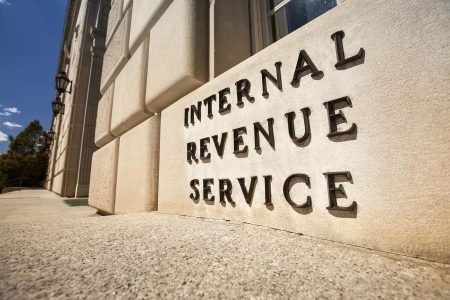Forming a limited liability company (LLC) can offer significant tax advantages for real estate investors, including pass-through taxation and a special tax deduction associated with LLCs. Additionally, LLCs can provide a shield against personal liability, protecting your personal assets from legal claims associated with your rental properties. A financial advisor could also be a worthwhile partner to maintain a relationship with throughout this process.
Have Questions About Your Taxes?
A financial advisor may be able to help. Match with an advisor serving your area today.
Get Started Now
Tax Advantages of LLCs for Rental Property Owners
From pass-through taxation that avoids double taxation to management flexibility, an LLC can enhance the profitability and protection of your real estate investments. Here are the primary tax benefits of using this business structure to own rental properties.
1. Pass-Through Taxation
Pass-through taxation is one of the primary advantages of the LLC business structure. Unlike corporations, LLCs do not pay federal income taxes at the entity level. Instead, the income or losses of the rental property pass through to the individual owner’s tax return. This means that rental income is only taxed once, avoiding the double taxation that corporations face. As a result, owners can often retain more of their rental income, enhancing their overall profitability.
2. Qualified Business Income (QBI) Deduction
The Tax Cuts and Jobs Act of 2017 introduced the Qualified Business Income (QBI) deduction, allowing eligible LLC owners to deduct up to 20% of their qualified business income. Rental property income can qualify for this deduction if the activity is considered a trade or business. By maintaining proper records and ensuring the rental activity meets the necessary criteria, LLC owners can take advantage of this significant tax break. However, this deduction will sunset on Dec. 31, 2025, unless the provision is extended by Congress.
3. Flexibility
The flexible structure of an LLC is another noteworthy benefit. LLCs offer a versatile management framework that can be customized to fit the needs of the owners. This flexibility extends to the way profits and losses are distributed among members. Unlike corporations, which have strict guidelines on profit distribution, LLCs can allocate profits in a manner that reflects the contributions and agreements of the members. This flexibility can be a major advantage when a property has multiple partners or investors.
4. Retirement Contributions
LLC owners have the option to establish retirement plans, such as a solo 401(k) or SEP IRA, and make contributions that are deductible from their taxable income. These retirement plans allow for significant tax-deferred savings, reducing current tax liability while planning for future financial security. Contributions to these plans are typically higher than those allowed for traditional IRAs, providing a robust mechanism for building retirement savings.
Other Benefits

Beyond tax benefits, LLCs offer legal protection. As a rental property owner, you face various risks, including lawsuits from tenants or third parties. By separating personal and business assets, an LLC shields owners from personal liability related to their rental properties. In the event of a lawsuit or debt incurred by the property, the owner’s personal assets are typically protected.
Forming an LLC can also enhance the credibility and professionalism of a rental property business. It could signal to tenants, partners and lenders that the business is well-structured and serious.
Drawbacks of Owning Rental Properties Through LLCs
One potential issue using an LLC for your rentals could induce is the complexity and costs involved in setting up and maintaining an LLC. Establishing an LLC requires filing legal documents and paying registration fees, which can vary by state. Additionally, ongoing expenses such as annual report fees and potential franchise taxes add to the financial burden, making the process more cumbersome than holding properties personally.
Owning rental properties through an LLC increases administrative responsibilities. Property owners must adhere to specific record-keeping and reporting requirements to maintain the LLC’s legal status. This includes maintaining separate bank accounts, documenting meetings and keeping detailed financial records. These administrative tasks can be time-consuming and may necessitate hiring professional services, further increasing costs and complexity.
Securing financing for rental properties owned by an LLC can be more challenging compared to personal ownership. Lenders often view LLCs as higher risk, leading to stricter loan terms or higher interest rates. Some lenders may even refuse to finance properties held by LLCs altogether.
Finally, managing an LLC with multiple members can lead to disputes among owners. Disagreements over management decisions, profit distribution or long-term goals can strain relationships and potentially disrupt business operations. Having a well-drafted operating agreement can mitigate these risks, but conflicts can still arise, requiring legal intervention to resolve.
How to Set Up an LLC for Your Rental Properties
Choosing the right state for your LLC is crucial, as each state has different regulations and fees. Once you’ve decided, select a unique name for your LLC that complies with your state’s requirements. Ensure the name is distinguishable from other registered entities in your state to avoid legal issues.
The next step is filing the Articles of Organization with the secretary of state in your chosen state. This document includes essential details about your LLC, such as its name, address and the names of its members. You will also need to pay a filing fee, which varies by state.
An operating agreement details the ownership arrangement and operational guidelines for your LLC. Although it may not be legally mandated, it’s often beneficial to have one. This document helps avert conflicts among members and establishes a clear framework for how the LLC will function.
An employer identification number (EIN) is necessary for tax purposes and can be obtained from the IRS. Additionally, register for any required state taxes. Having an EIN also allows you to open a business bank account, which is vital for keeping personal and business finances separate.
Lastly, you can transfer property titles into the LLC. This process involves executing a deed to transfer ownership from your name to the LLC.
Alternatives to LLCs for Rental Properties

A sole proprietorship is the most straightforward way to manage rental properties. It requires no formal registration, making it easy to set up and operate. While this structure does not provide the liability protection of an LLC, it offers simplicity in tax filing. All rental income and expenses are reported directly on the owner’s personal tax return, which can be a significant advantage for those looking to avoid the complexities associated with more formal business structures.
Other ownership structures include:
- Partnerships: Partnerships allow for shared decision-making and responsibilities, which can be beneficial for those who prefer collaborative management. Although partnerships do not provide the same level of liability protection as LLCs, they can still offer tax advantages.
- Corporations: For those seeking stronger liability protection than what an LLC offers, forming a corporation might be a viable alternative. Corporations are separate legal entities, which means the personal assets of the shareholders are generally protected from business liabilities. However, the tax treatment of corporations is more complex.
- Trusts: Using a trust to hold rental properties can offer unique advantages, particularly in estate planning. Trusts can help ensure that properties are managed and distributed according to the owner’s wishes after their death, providing peace of mind and continuity.
Bottom Line
An LLC allows for pass-through taxation, meaning the income generated from rental properties is reported on your personal tax return, potentially lowering your overall tax burden. Additionally, LLC owners can deduct business-related expenses, such as maintenance, repairs, and property management fees, further reducing taxable income. The LLC structure also offers flexibility in profit distribution among members, optimizing tax efficiency. Incorporating your rental properties under an LLC not only safeguards your assets, but also can be an attempt to maximize your financial advantages.
Tax Tips for Real Estate Investors
- A 1031 exchange is a tax-deferral strategy used in real estate that allows an investor to defer paying capital gains taxes on an investment property when it is sold, as long as another similar property is purchased with the profit gained by the sale. This provision, named after Section 1031 of the IRS code, encourages real estate investment by allowing investors to reinvest the full amount of their sale into new properties, effectively shifting the tax obligation forward in time.
- A financial advisor with tax expertise can potentially help you optimize your real estate portfolio’s tax efficiency. Finding a financial advisor doesn’t have to be hard. SmartAsset’s free tool matches you with up to three vetted financial advisors who serve your area, and you can have a free introductory call with your advisor matches to decide which one you feel is right for you. If you’re ready to find an advisor who can help you achieve your financial goals, get started now.
Photo credit: ©iStock.com/Zhanna Hapanovich, ©iStock.com/elxeneize ©iStock.com/KentWeakley
Read the full article here










